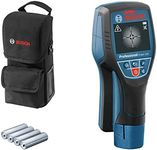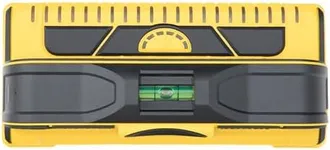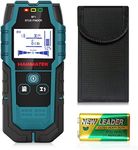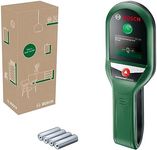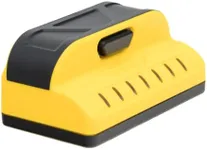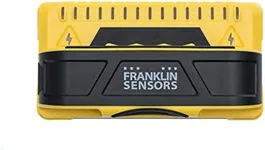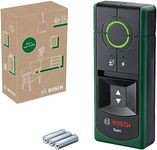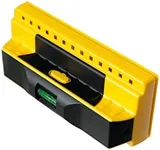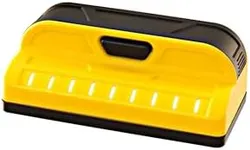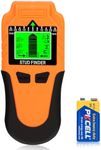Buying Guide for the Best Stud Finders
When it comes to home improvement or DIY projects, a stud finder is an essential tool for locating the wooden or metal studs behind your walls. Choosing the right stud finder can make your work more efficient and prevent unnecessary damage to your walls. The key is to understand the different features and specifications that can affect the performance of a stud finder and how they align with your specific needs.Type of Stud FinderStud finders generally come in two types: magnetic and electronic. Magnetic stud finders use magnets to detect the metal nails or screws in the studs, while electronic stud finders use sensors to detect changes in the wall density. Magnetic stud finders are simple, require no batteries, and are generally less expensive, but they can be less precise. Electronic stud finders are more accurate and can detect a variety of materials, but they require batteries and can be more complex to use. If you need precision and are working on a variety of wall types, an electronic stud finder might be the best choice. For occasional use on standard walls, a magnetic stud finder could suffice.
Detection DepthDetection depth refers to how deep into the wall the stud finder can detect studs. This is important because walls can vary in thickness, and you need a stud finder that can accurately detect studs through the material. Detection depths can range from 0.5 inches to over 1.5 inches. If you're working with thicker walls or need to detect studs behind additional materials like paneling, opt for a stud finder with a greater detection depth. For standard drywall, a basic detection depth should be sufficient.
Material DetectionSome stud finders can detect more than just wood studs; they can also identify metal studs, live wires, and even pipes. This feature is crucial for safety and accuracy, especially in older homes where wiring and plumbing might not be up to code. If you are working in an environment where you suspect there might be live wires or metal studs, a stud finder with multi-material detection is advisable. For simple projects on newer constructions, a basic wood stud detection might be all you need.
Display and IndicatorsThe display and indicators on a stud finder can vary from simple LED lights to more advanced LCD screens. These indicators help you understand when a stud is detected and can provide additional information like the center of the stud or the presence of live wires. A clear and easy-to-read display can make the tool more user-friendly, especially for beginners. If you prefer straightforward operation, look for a stud finder with simple LED indicators. For more detailed information, an LCD screen might be beneficial.
Size and ErgonomicsThe size and ergonomics of a stud finder can affect how comfortable it is to use, especially for extended periods. A compact and lightweight design is easier to handle and maneuver, while an ergonomic grip can reduce hand fatigue. Consider how often and for how long you will be using the stud finder. If you plan on using it frequently or for large projects, prioritize comfort and ease of use. For occasional use, a basic design might be sufficient.
